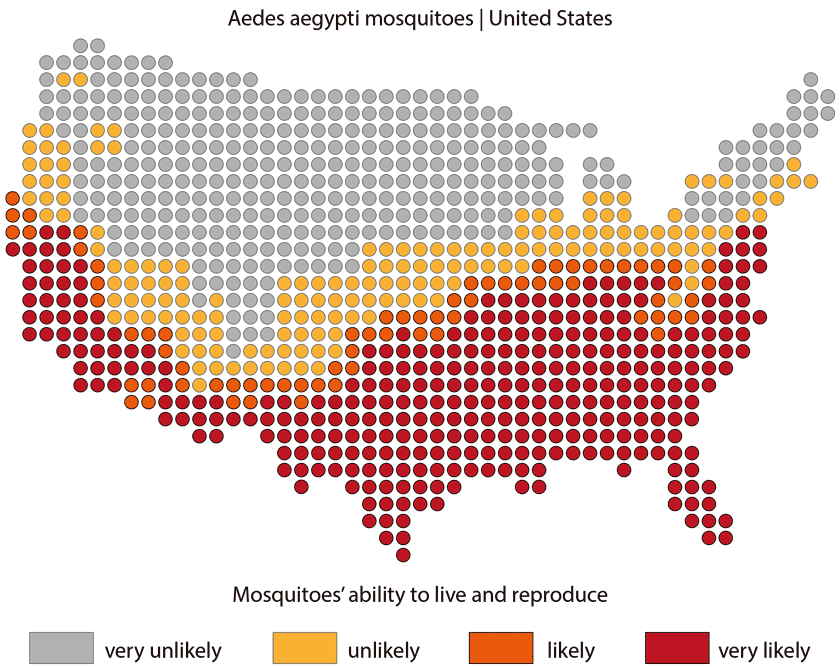Mosquito Control
FREE, No Obligation Quote. Book Online Now!
Get a FREE Instant Quote
FREE, No Obligation Quote. Book Online Now!
The mosquito life-cycle is different for male and female mosquitoes, last only a few weeks. In that time, mosquitoes can still cause a significant amount of harm and ensure their species carry on in vastly greater numbers.
Yes, mosquitoes do freeze at 50 degrees, however mosquitoes have a number of stages of life and they are not all impacted the same. Understanding the life-cycle is critical to understand that freezing weather alone is not enough to eradicate mosquitoes.

The mosquito life-cycle is different for male and female mosquitoes, last only a few weeks. In that time, mosquitoes can still cause a significant amount of harm and ensure their species carry on in vastly greater numbers.

Up to 2 Days, as long as months!
Eggs are laid on the surface of water and float like a raft of 100-300 individually laid eggs. They are about 1/4 inch long and 1/8 inch wide. Different species lay their eggs differently, the Anopheles and Aedes do not make rafts but do lay eggs one at a time. The Aedes does not lay eggs on water, but do lay them in areas that will be flooded by water. Most of the eggs hatch within 48-hours of coming into contact with water. However, in some cases the eggs will go months before hatching. This adaptation allows them to survive extremely harsh winters and freezing weather.

About 5 – Days.
Larvae are hatched from the eggs after about 2-days and are often called “wigglers”. They live in water but breathe air from the surface using a siphon like tube. Anopheles are slightly different, their larvae lay parallel to the water surface.
Larvae fee on organic matter in the water and any micro-organisms that are close by. There are stages for Larva, each stage is called an instar – each time time they molt their skin and grow. After the 4th instar, the larva becomes a pupa.

2 to 3 Days until Adulthood.
“Tumblers” or the Pupa stage for mosquitoes is when the mosquito has grown to the final stage before becoming an adult. The pupa is lighter than water and floats on the surface. The Pupa stage is a non-feeding stage, but still breathes oxygen. After this short period of time, approximately 2 to 3 days – the pupa becomes a fully functional adult mosquito, when the development is complete the pupal skin splits and the adult emerges.

Up to 1 to 2 Months!
Once the newly formed adult mosquito is hatched, it emerges and rests on the surface of the water to dry and harden. This allows the wings to properly spread out and for the mosquito to develop and begin flying and in some cases biting.
Male mosquitoes feed on plant juices, they do not bite humans and only serve to procreate with female mosquitoes.
Female mosquitoes bite, not for food – but to use the blood to help mature the eggs for future mosquitoes. Females food or energy come from the same plant juices as males.
Typically, mosquitoes only travel a few blocks from their birth source, however – they have recorded some traveling up to 75 miles!

The peak mosquito control season is April to October; however, we recommend starting control services in mid March. The early start helps ensure that the eggs that survived the freezing weather are less likely to spawn and any that make it through are killed by the treatment.
Mosquito Control Options, from an extreme chemical perspective to a more controlled and safe solution.
NOMO Mosquitoes helps people quickly find affordable mosquito control services for their area, schedule and pay online – all in just a few clicks. Our goal is to give families their yards back by providing excellent and guaranteed services!

 A beginning to the 2021 Mosquito Season
A beginning to the 2021 Mosquito Season 